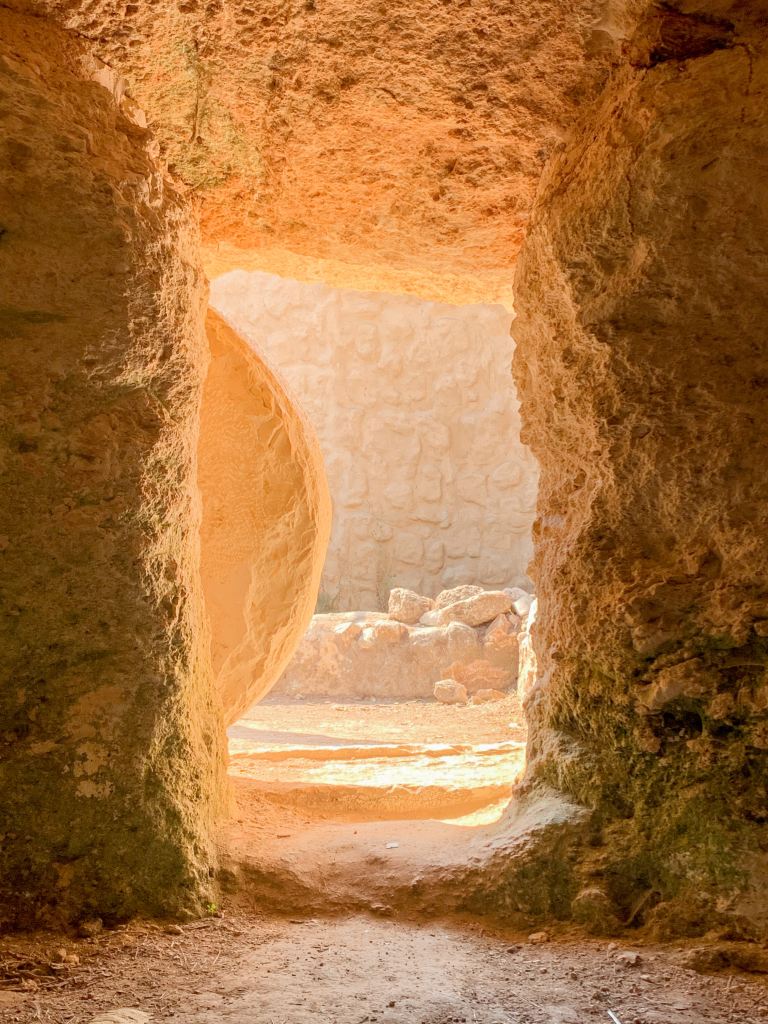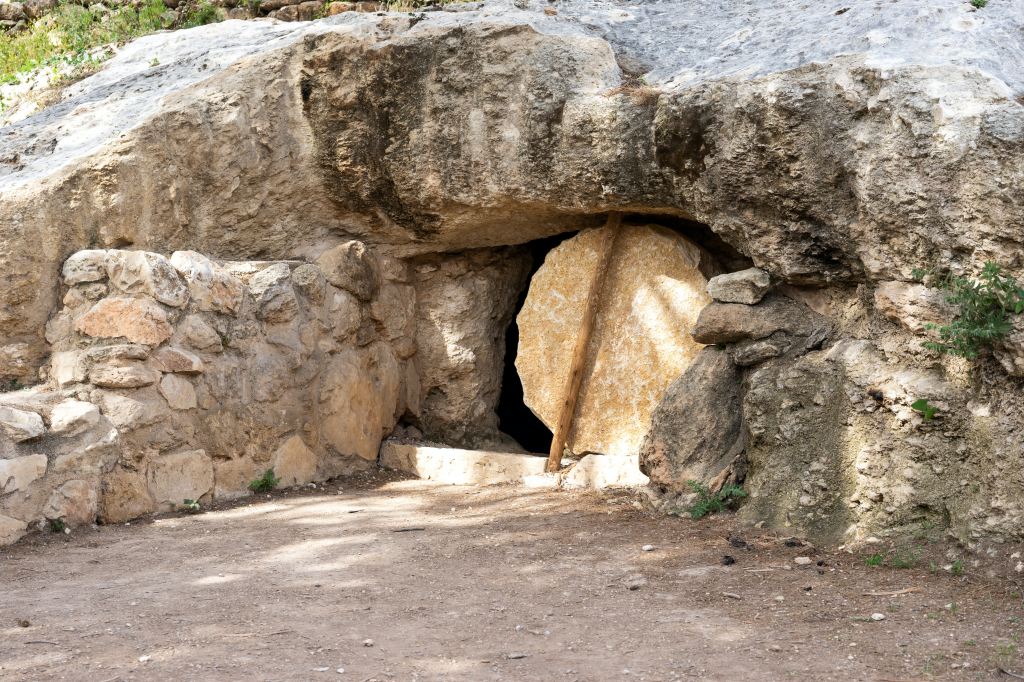
The LORD is my shepherd; I shall not want.
Psalm 23: 1-3b, New American Bible, 2001 Edition
In verdant pastures he gives me repose;
beside restful waters he leads me;
he refreshes my soul.
Last year, in the fourth week of Easter, I reflected on a verse from the Gospel of John, 10: 27. This verse comes not long after this week’s Gospel reading, and the theme remains the same. The theme is, “Who is the Good Shepherd, and how do the sheep respond to Him?” Because I’ve already taken a look at John’s answers to these questions, I’m going to sit with Psalm 23 for this post.
For most of my life, my experience with the psalm has been like watching a movie that deserves to win Oscars for set and costume design. It projected beautiful scenes in my mind. But I’ve learned in the last two years that these verses offer beauty that’s even more appreciated when I engage my curiosity with them in addition to my mind’s eye.
Admittedly, the first verse doesn’t provide as much visual inspiration as the next two do. I think this is why it’s been the verse that I sometimes felt like I had to pretend I believed. “The Lord is my shepherd; I shall not want” says the translation used in Mass today. At times, I’ve gotten into my head that if I believed the Lord was my shepherd, I had to hide that I wished some things were different. Having to do this is problematic whenever living with one’s mind, body, or external circumstances is painful. Nonetheless, I thought I had to wear a contented mask because if I believed the Lord was my shepherd, I’d be satisfied. I wouldn’t feel like I lacked anything.
Maybe the New American Bible Revised Edition translation I usually use contributed to this thinking. It says, “The Lord is my shepherd; there is nothing I lack.” Not including the word “shall” in the translation suggests that I lack nothing now. The trouble with this sentiment is that it’s in conflict with my experience. I’m tempted to try to avoid the discomfort of this conflict by saying that I do lack nothing even if I feel like I lack something, that I lack nothing as long as I open myself more and more to God and move toward union with God. Any lack only seems like lack because my relationship with God is isn’t yet unobstructed.
Still, even this understanding puts lacking nothing in the context of having greater clarity in the future. The lack of clarity itself, the limitations themselves, are a lack To some extent that lack isn’t my fault, isn’t the fault of any individual alone. I’m wounded not only by my choices but by the wounds others carry, by the frailty of the human condition, and by the fact that I’m limited by time and space, and God isn’t.
So including or not including the word “shall” has a major impact on what the verse means to me. Now, it occurs to me that I might not have always understood the “shall” to promise the ideal future. It can signify a command, as in, “You shall not kill.” It’s difficult to think of God commanding me not to want anything. It doesn’t even seem possible not to want anything. And doesn’t wanting something sometimes lead me to seek God and all the justice, peace, and love that can be found in the seeking? Yes, in my experience, and I think I’m far from alone in this experience.
Therefore, I see this verse in the psalm as a whole as a prophecy and a promise that if I trust the Lord as my shepherd, the Lord will lead me to a life that lacks nothing. Sometimes this life without lack is easier to perceive than at others. It’s an experience that doesn’t always feel out of reach.
The verses that follow are reminders of these moments when God’s grace and providence fill the senses. “In verdant pastures he gives me repose” says the 2001 edition of the New American Bible that the Mass and the Universalis software use. “In green pastures he makes me lie down” says the New American Bible Revised Edition. For a long time I thought this verse was just a verse about the Ultimate Shepherd, God, leading me to find rest in beautiful surroundings.
Then a few years ago, my spiritual director gave me the perspective that it’s not normal sheep behavior to lie down in a field of green grass. Sheep would normally graze in such a field. They’d have to be so full they couldn’t eat anymore to lie down in that green pasture. So the shepherd satisfies the sheep so completely that they can’t do anything but rest.
He doesn’t just lead them “beside restful waters” either (New American Bible, 2001 Edition). The shepherd and the flock aren’t taking this path just to admire and be calmed by the view that a walk along a shore provides. Why does a shepherd lead a flock “”to still waters” (New American Bible Revised Edition)? I think so its members can drink, so they can take those “restful waters” into their bodies. No living thing can survive more than a few days without fluids, and water is the best kind for us. But the Good Shepherd doesn’t just satisfy the thirst of the body. This Ultimate Shepherd satisfies the thirst of the soul. This satisfaction gives peace a home within us. It gives us a peace that is less displaced by external circumstances. It’s so much more than the serenity we might get from the most mirror-like lake view we can imagine.
My experience is that the feeling of having a “restore[d]” soul is fleeting in this life (New American Bible Revised Edition). But less peaceful experiences aren’t permanent either. Recording for myself the moments when I’ve been a sheep made to lie down in green pastures and have been taken to drink water that restores my soul helps me hope for brighter days when I’m in the midst of darker ones.
I think Psalm 23 uses vivid imagery of nature to give himself something to lean on in difficult times. Later versus explore those difficult times more directly, but I’ve decided that is a discussion for next week’s post. Without planning on it, I’ve begun a two- or probably three-part series on Psalm 23.
For now Lord, thank you for being my Shepherd and the Shepherd of all Your creation. Help me to see unexpected developments as opportunities to see how beautifully you will provide for me if I listen to Your voice in my heart and follow where You lead. Amen.
Works cited
The Bible. The New American Bible Revised Edition, Kindle edition, Fairbrother, 2011.
Confraternity of Christian Doctrine, Inc. “Sunday July, 2 2023: Readings at Mass.” The New American Bible, 2001. Universalis for Windows, Version 2.179, Universalis Publishing Ltd., 26 Feb. 2023, https://universalis.com/n-app-windows.htm






